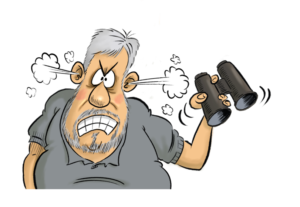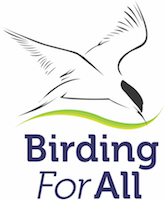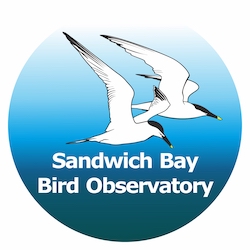Bank Balances or Bank Swallows?
This article first appeared in Birds Illustrated
Worried by the growing urban sprawl, more and more people are buying a few acres of woodland to keep for no other reason than that they want to ensure our green and pleasant lands will not become urban desserts. Many of us are, in a sense, landowners as we support such organisations as the Woodland Trust, the RSPB, a preserve owning Audubon Society or some other organisation fighting to keep some of our homelands wild enough to suit furry or flying critters. Many of us proudly frame certificates for our study walls saying that we own our acre of Amazonia or other world wild place – doing our bit for heritage.
There are, of course, many landowners who believe that the land is in trust for all our children, that they do not so much own land as have the privilege to hold it for a while.
Our literature is littered with romantic images of the rural idyll from Hardy’s Woodlanders to H E Bates’s Ma & Pop Larkin, from Flora Thompson‘s Larkrisers to Gerard Manley Hopkins wandering the land lost in the ‘glory of dappled things’. Of course the reality was of hard work and hard times, with some landlords as cruel and harsh as any of Dicken’s Beadles or headmasters. We tend to romanticise the wilderness too whether it be Jack London’s White Fang or Scott’s beautiful Highlands we imagine a past where nature reigned and humankind merely borrowed from its bounty.
But… [dear reader surely you know me well enough by now to have expected there to be a ‘but’]… my experience of the average farmer, in the UK at least, is that they are by no means sentimental nor as forward looking as we would have them. Pier’s ploughman knew that those lucky enough to have holdings were not all caring ‘husbands of the soil’.
When I lived and worked on a farm some years ago I found to my amazement that not all farmers loved birdsong and badger setts, moreover, many were very careless of the land squandering it under rubble and rotting machinery.
But it is neither the romantic idealists, nor the careless farmers that has bought my country’s wildlife to its current low level but rather those who can only see land as production units, copses as timber banks and every acre as hard won from Mother Nature. Agribusinesses value a bank balance far higher than they value a bank vole.
I live in a town where farmland is still trapped within spreading urbanisation and so I must pass fields when going shopping or posting a letter. While it is not completely devoid of birds there are only a few species and mostly low in numbers. This is hardly surprising as the land is never out of use. A crop is taken one day, the land is ploughed and ‘treated’ the next and within a week or two it is back growing the same crop as it was last month, last year and the years before. It is barely rested and not coaxed into productivity but beaten into submission as acid is used to scour it of life so that pests cannot attack the monoculture. Crop after crop of cauliflowers are grown and attract only wood pigeons and feral doves from the town.
In my youth land lay fallow one year in four and each year it was planted with a different crop, nature was not the enemy but a helper. Can you imagine now someone planting seed singing the old country lay of my youth ‘one for the rook and one for the crow, one to rot and one to grow’? Nowadays every kernel is dressed with pesticide, herbicide and laced with artificial fertiliser.
The farmers must carry some blame but far more important are the huge food-selling combines who squeeze and squeeze produce prices until the pips can squeak no more! Supermarkets pay so little for home grown grub that farmers go under. Overseas growers get even less so we import pole beans from Kenya, potatoes from Peru and apples from the antipodes – further burdening the world with fossil fuel wasted and more pollutants discharged into the air.
The current ‘credit crunch’ was brought about by banker’s so far removed from the lives of ordinary people that they saw homes as commodities and livelihoods as production units. Such grasping greed has bought ruin for many thousands of innocent people now lies bare-boned in the light of reason for all to see. We are waking up to the destruction of pristine forest that such greed is causing. More and more of us are becoming aware of how traditional farming has given way to short-sighted exploitation that ruins the land for generations. Its not about profit or loss but usury, the rich taking more than they can ever use and often impoverishing those who have little or nothing.
So its not enough for us lovers of all things wild to sit at home feeling pleased with ourselves for buying an acre of rainforest or for feeding the birds in the yard. We have to reclaim our land, save it from those who would destroy it in the name of progress and start acting locally to save us globally.
We can’t take it back just by paying our subs to a conservation society, we must start insisting that more of what we eat is grown at home, and that in such a way that worships nature not destroys it, the closer we can get to modern organic production the healthier we and the land will be; the closer to home it is grown, the cleaner will be our air and the less the globe will warm… and the better the land, and the cleaner air, the more the birds will flourish!





